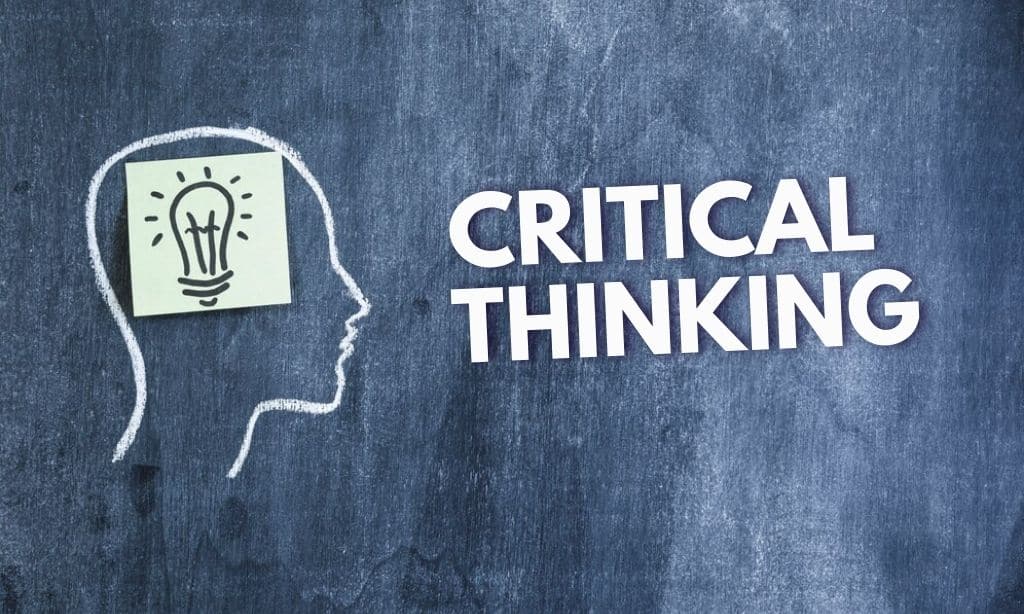Leadership skills are crucial to success in any job. They help you guide teams, make intelligent choices, and reach goals. You don’t need to be a boss to use these skills. Anyone can be a leader at work.
Good leaders know how to manage time and energy. They focus on what’s most important. They also make sure their team feels valued. By growing your leadership skills, you can do better at work and help others do the same.
The Importance of Leadership Skills
Leadership skills are vital for success in any workplace. They help people guide teams, make decisions, and achieve goals. Good leaders inspire others and create positive work environments.
Boosting Team Morale
Strong leaders lift team spirits. You can use your leadership skills to motivate your team. Praise good work and give helpful feedback. This makes people feel valued.
Set clear goals for your team. Help them see how their work matters. When people know why their tasks are important, they work harder.
Create a positive work culture. Encourage open talks and new ideas. This makes people feel safe to share their thoughts. Happy teams are more creative and get more done.
Driving Organizational Success
Your leadership skills can help your company grow. You can guide your team to meet business goals. Good leaders make wise choices that allow the whole company to grow.
You can spot problems early and fix them fast. This saves time and money. Your skills help you plan for the future and adapt to changes.
Good leaders build strong teams. You can pick the right people for jobs and help them work well together. This makes your company more successful.
Enhancing Personal Development
Leadership skills help you grow in your career. You learn to communicate better and solve challenging problems. These skills are helpful in any job.
As a leader, you face new challenges. This helps you learn and improve. You become more confident and can handle stress better.
Leadership skills also help in your personal life. You can use them to set and reach your own goals. They allow you to build better relationships with friends and family.
1. Effective Communication
Communication is a crucial leadership skill. It helps you connect with your team and get things done. Good leaders know how to share ideas.
You need to speak and write well. This means using simple words that everyone understands. Avoid jargon or complex terms.
Listening is just as essential as talking. Pay attention when others speak. Try to understand their point of view. This shows respect and helps build trust.
Be clear about what you want. Give specific instructions and deadlines. This reduces confusion and helps your team work better.
Use different ways to communicate. Some people prefer emails, while others like face-to-face talks. Adapt your style to fit your audience.
Body language matters, too. Make eye contact and use open gestures. This makes you seem more approachable and honest.
Practice empathy in your conversations. Try to see things from other people’s perspectives. This helps you respond in a caring way.
Remember to give feedback often. Praise good work and offer helpful improvement tips. This keeps your team motivated and growing.
2. Active Listening
Active listening is a crucial skill for leaders. It helps you understand your team better and build trust. When you listen actively, you pay full attention to the speaker.
You show you’re listening through your body language. Make eye contact and nod to show you’re engaged. Avoid distractions like checking your phone or looking around the room.
Ask questions to clarify what you hear. This shows you’re trying to understand fully. It also helps prevent misunderstandings.
Repeat back critical points in your own words. This confirms you’ve heard correctly and shows you value what was said.
Don’t interrupt or jump to conclusions. Let the speaker finish their thoughts before responding. This shows respect and helps you get the whole picture.
Practice empathy when listening. Try to see things from the speaker’s point of view. This helps you connect better with your team members.
Use active listening in meetings, one-on-ones, and casual conversations. It will improve your relationships and make you a more effective leader.
Remember, good listening is about understanding, not just hearing. It takes practice, but the benefits are worth the effort.
3. Empathy
Empathy is a crucial leadership skill that helps you connect with your team. It’s about understanding and sharing the feelings of others. When you show empathy, you build trust and improve relationships at work.
You can develop empathy by actively listening to your team members. Pay attention to their words, tone, and body language. Try to see things from their point of view, even if you disagree.
Empathetic leaders create a safe space for open communication. You can encourage your team to share their thoughts and concerns. Show that you value their input and take it seriously.
Practice empathy in your daily interactions. Ask how your team members are doing and listen to their answers. Offer support when they face challenges at work and in their personal lives.
Remember that empathy doesn’t mean you have to agree with everyone. It’s about understanding and respecting different perspectives. This skill can help you make better decisions and resolve conflicts more effectively.
To improve your empathy, try putting yourself in others’ shoes. Think about how you would feel in their situation. This can help you respond with more kindness and understanding.
4. Problem-Solving
Problem-solving is a crucial skill for leaders. It helps you tackle challenges and find solutions. Good problem-solvers can spot issues early and fix them quickly.
To excel at problem-solving, start by finding the root cause. Ask questions and gather facts. Don’t jump to conclusions too fast.
Next, think of many possible solutions. Get ideas from your team. Different views can lead to better answers. Write down all ideas, even ones that seem odd at first.
Then, look at each option closely. Think about how it might work and what could go wrong. Pick the best choice based on facts, not just gut feelings.
Once you decide, act on it. Make a plan and follow through. Keep track of how well it works. Be ready to adjust if needed.
Practice these steps often. The more you solve problems, the better you’ll get. Your team will trust you more when they see you handle issues well.
Remember, not all problems have perfect solutions. Sometimes, you must make tough choices with limited info. Stay calm and use your best judgment.
Good problem-solving skills can set you apart as a leader. They show you can think clearly under pressure. This ability will help you in any workplace.
5. Decisiveness
Being decisive is a crucial leadership skill. It means making choices quickly and confidently. Leaders often face tough decisions. They need to act fast, even with limited info.
You can boost your decisiveness by trusting your gut. Practice making small choices swiftly. This builds confidence for more significant decisions later.
Good leaders gather facts before deciding. They ask for input from their team. But they don’t get stuck in endless debates. They know when it’s time to make the call.
Decisiveness doesn’t mean being rash. It’s about finding the right balance. You weigh options carefully, then commit fully to your choice.
When you’re decisive, your team feels more secure. They know you’ll guide them through challenges. This skill helps you move projects forward and meet goals on time.
To improve, start small. Make quick choices about everyday things. As you get better, tackle more significant decisions. Remember, it’s okay to adjust the course if needed. The key is to keep moving forward.
6. Adaptability
Adaptability is a crucial leadership skill in today’s fast-changing work world. It means being able to adjust to new situations and challenges quickly.
You need to be flexible when things don’t go as planned. This could mean changing your approach to a project or finding new ways to reach goals.
Good leaders help their teams adapt, too. You can do this by staying calm during changes and encouraging new ideas.
Being adaptable also means learning new skills. Technology and work practices are constantly evolving. You should be ready to learn and grow.
Adaptable leaders listen well. They pay attention to feedback and use it to make intelligent changes.
You can improve your adaptability by trying new things. Take on different tasks at work. This will help you get used to change.
Practice solving problems creatively. When facing a challenge, think of several ways to fix it.
Stay informed about your industry. Knowing about new trends will help you adapt faster.
Remember, adaptability isn’t just about reacting to change. It’s about being ready for it and seeing it as a chance to improve.
7. Critical Thinking
Critical thinking is a crucial leadership skill that helps you make intelligent choices and solve problems. It’s about looking at information carefully and using logic to figure things out.
Good leaders use critical thinking to break down complex issues into smaller parts. They ask questions, gather facts, and consider different viewpoints before deciding what to do.
You can improve your critical thinking by practicing a few simple steps. Start by identifying the main problem or question. Then, collect relevant information from reliable sources.
Next, analyze the data you’ve gathered. Look for patterns, connections, and any gaps in your knowledge. Consider possible solutions and think through the pros and cons of each option.
Finally, make a decision based on your analysis. Be ready to explain your reasoning to others. Remember, critical thinking is a skill that gets better with practice.
Critical thinking can lead to better outcomes for your team and organization. It helps you avoid common mistakes and find creative solutions to challenges.
Try to encourage critical thinking in your team members, too. Ask for their input on problems and create an environment where questioning and analysis are welcome.
8. Time Management
Time management is critical for leaders to get things done. You need to know where your time goes each day. Make a schedule and stick to it. Put the most important tasks first.
Break big jobs into smaller steps. This makes them less scary. Set deadlines for each step. Cross things off your list as you finish them.
Learn to say no to tasks that aren’t crucial. Don’t let others steal your time with unimportant stuff. Focus on what matters for your work and team.
Use tools to help you stay on track. Try a digital calendar or a task app. These can remind you of due dates and meetings. They also help you see your whole day at a glance.
Take breaks to recharge. Short rests can help you work better when you return. Get up and stretch, or take a quick walk. This keeps your mind fresh.
Delegate tasks when you can. Trust your team to handle some work. This frees you up for the big-picture stuff. It also helps your team grow their skills.
Set a good example for your team. Show them how to use time wisely. When you manage your time well, they’ll follow your lead.
9. Delegation
Delegation is a crucial skill for leaders. It helps you share tasks and grow your team. When you delegate well, you free up time for meaningful work.
Good delegation starts with knowing your team’s strengths. Match tasks to people who can do them best. This helps everyone succeed.
Clear instructions are vital when delegating. Tell your team exactly what you need and when you need it. Give them the authority to make decisions about the task.
Trust is a big part of the delegation. Let go of control and believe in your team’s abilities. This shows you have faith in them.
Set check-in times to see how work is going. This keeps projects on track without micromanaging. It also lets you offer help if needed.
Feedback is essential in delegation. Praise good work and give improvement tips. This helps your team learn and grow.
Remember, delegation isn’t about giving away all your work. It’s about sharing tasks to help everyone do their best. When done right, it makes your whole team stronger.
10. Conflict Resolution
Conflict resolution is a vital leadership skill. You need to handle disagreements between team members effectively. This ability keeps your workplace running smoothly.
Good conflict resolution starts with listening. You should hear out all sides of an issue. Pay attention to what people say and how they feel. This helps you understand the root of the problem.
Stay calm and neutral when dealing with conflicts. Don’t take sides or let emotions cloud your judgment. Your goal is to find a fair solution that works for everyone involved.
Look for common ground between the conflicting parties. There’s often a shared goal or interest that can bring people together. Use this as a starting point for finding a resolution.
Encourage open communication among your team members. Create a safe space where people feel comfortable sharing their thoughts and concerns. This can prevent minor issues from growing into significant conflicts.
Sometimes, you may need to step in and make a decision. Be firm but fair when doing this. Explain your reasoning clearly so everyone understands why you chose that solution.
Practice empathy in your conflict resolution efforts. Try to see things from different perspectives. This helps you find solutions that address everyone’s needs and concerns.
Remember, resolving conflicts takes time and patience. Don’t rush the process. Give people time to cool off and think things through if needed.
11. Visionary Thinking
Visionary thinking is a crucial leadership skill that can set you apart in any workplace. It’s about seeing beyond the present and imagining new possibilities for the future.
To develop visionary thinking, start by looking at the big picture. Think about where your organization could be in 5 or 10 years. What goals could you achieve? What problems could you solve?
Creativity is crucial for visionary thinking. Try to come up with new ideas and solutions. Don’t be afraid to challenge the status quo or think outside the box.
Communication is also vital. You need to share your vision clearly with others. Use stories and examples to make your ideas come alive. This helps your team understand and get excited about the future you see.
Being open to feedback is essential, too. Listen to others’ ideas and incorporate them into your vision. This makes people feel valued and more likely to support your goals.
Stay informed about industry trends and new technologies. This knowledge can spark fresh ideas and help you spot opportunities others might miss.
Remember, visionary thinking isn’t just about having big ideas. It’s also about taking action to make those ideas a reality. Break your vision down into smaller, achievable steps.
By cultivating visionary thinking, you can inspire your team and drive your organization forward. It’s a powerful skill that can lead to innovation and long-term success.
12. Strategic Planning
Strategic planning helps you set long-term goals and determine how to reach them. It’s an essential skill for leaders at all levels. You need to look at the big picture and think about where you want your team or company to go.
To plan well, you should gather information about your industry and competitors. Look at what’s working now and what might change in the future. Think about your strengths and weaknesses.
Next, set clear goals that match your vision. Break these big goals into smaller steps. Decide what actions you’ll take to make progress. Make sure your team understands the plan and their part in it.
Be ready to adjust your plan as things change. Review it regularly and update it when needed. Good strategic planning keeps you focused and helps you make intelligent choices.
By improving this skill, you can guide your team to success. You’ll be better prepared for challenges and able to spot new opportunities. Strategic planning is critical to moving your organization forward.
13. Mentorship
Mentorship is an essential leadership skill to boost your career and help others grow. As a mentor, you guide less experienced colleagues and share your knowledge. This role lets you develop your skills while supporting others.
Good mentors listen actively and ask thoughtful questions. They offer constructive feedback and help mentees set goals. By sharing experiences, mentors provide valuable insights into workplace challenges.
Mentoring improves communication skills and builds stronger relationships. It helps you see different perspectives and stay connected with emerging trends. As you guide others, you’ll reinforce your expertise.
To be an effective mentor, set clear expectations and meet regularly. Be patient and encourage your mentee to take initiative. Celebrate their successes and help them learn from setbacks.
Mentorship programs benefit organizations, too. They boost employee engagement and retention. These programs also foster a culture of continuous learning and growth.
You can seek out mentorship opportunities within your company or professional networks. Many industry associations offer mentoring programs as well. By becoming a mentor, you’ll enhance your leadership abilities and positively impact others’ careers.
14. Resilience
Resilience is an essential leadership skill that helps you bounce back from setbacks. It’s about staying strong when things get tough. You can develop resilience through practice and mindset shifts.
Start by embracing challenges as opportunities to grow. When you face a problem, look for ways to learn from it. This mindset can turn obstacles into stepping stones.
Build a support network of trusted colleagues and mentors. They can offer advice and encouragement during difficult times. Having people to lean on makes bouncing back easier.
Take care of your physical and mental health. Regular exercise, healthy eating, and good sleep habits boost your ability to handle stress. When you feel good, you’re better equipped to face challenges.
Practice emotional intelligence. Understand your feelings and those of others. This awareness helps you stay calm and make better decisions under pressure.
Set realistic goals and celebrate small wins. Breaking big tasks into smaller steps makes them less daunting. Each success builds confidence and resilience.
Remember that setbacks are temporary. Keep a long-term perspective and focus on your overall vision. This outlook helps you push through tough times and emerge stronger.
15. Creativity
Creativity is an essential leadership skill that can set you apart in any workplace. It’s about coming up with new ideas and solving problems uniquely.
You can boost your creativity by trying new things. Step out of your comfort zone and explore different perspectives. This can help you think outside the box.
Encourage creativity in your team, too. Listen to their ideas and give them space to be innovative. Create an environment where people feel safe sharing their thoughts, no matter how unusual they seem.
Practice brainstorming regularly. Set aside time to generate ideas without judgment. Write down everything that comes to mind, even if it initially seems silly.
Look for inspiration in unexpected places. Read books from different genres, visit art galleries, or take nature walks. These experiences can spark new thoughts and connections.
Don’t be afraid to take risks. Creative leaders are willing to try new approaches, even if they might fail. Learn from mistakes and keep pushing forward.
Remember, creativity isn’t just for artists. You can use it in any job to find better solutions and drive progress. Keep an open mind and let your imagination guide you.
16. Accountability
Accountability means taking responsibility for your actions and decisions as a leader. It’s about owning up to mistakes and following through on commitments.
When you’re accountable, you build trust with your team. You show that you’re reliable and can be counted on. This helps create a positive work environment where everyone feels valued.
Being accountable also means setting clear expectations for your team. You need to communicate goals and standards. This helps team members understand what’s expected of them.
As an accountable leader, you give credit where it’s due. You recognize team members for their hard work and ideas. This boosts morale and encourages people to keep doing their best.
You also need to hold others accountable. This means having regular check-ins to track progress. It involves giving feedback and addressing issues promptly.
Accountability isn’t about blame. It’s about learning and improving. When things go wrong, focus on finding solutions rather than pointing fingers.
To improve your accountability, start by setting specific goals for yourself. Track your progress and be honest about areas where you need to improve. Ask for feedback from your team and act on it.
Remember, accountability starts with you. By modeling it, you encourage others to follow suit. This creates a culture of responsibility and excellence in your workplace.
17. Emotional Intelligence
Emotional intelligence is a crucial leadership skill that can help you excel in any workplace. It’s about understanding and managing your emotions and recognizing and influencing others’ feelings.
Self-awareness is a vital part of emotional intelligence. You need to know your strengths, weaknesses, and emotional triggers. This knowledge helps you make better decisions and react appropriately in different situations.
Another vital aspect is self-regulation. This means controlling your emotions, especially in stressful times. When you can stay calm under pressure, you set an excellent example for your team.
Empathy is also essential. It’s about putting yourself in others’ shoes and truly understanding their perspectives. This skill helps you build stronger relationships and resolve conflicts more effectively.
Social skills round out emotional intelligence. These include communication, teamwork, and the ability to inspire others. Good social skills help you motivate your team and create a positive work environment.
Developing emotional intelligence takes practice. You can improve by actively listening to others, seeking feedback, and reflecting on your behaviors and reactions. Remember, it’s an ongoing process that can significantly enhance your leadership abilities.
18. Trust-Building
Trust-building is a crucial leadership skill that can make or break your success in the workplace. Building trust with your team creates a positive work environment where people feel safe and valued.
To build trust, start by being honest and transparent in your communication. Share information openly and admit when you make mistakes. This shows your team that you’re human and willing to take responsibility.
Follow through on your promises and commitments. When you say you’ll do something, make sure you do it. This consistency helps others rely on you and trust your word.
Listen actively to your team members. Pay attention to their ideas, concerns, and feedback. Show that you value their input by incorporating it into decisions when possible.
Be fair and consistent in your treatment of others. Avoid playing favorites or making decisions based on personal biases. Treat everyone with respect and give credit where it’s due.
Show vulnerability by sharing appropriate personal experiences or challenges. This helps your team see you as approachable and relatable, fostering more profound connections.
Encourage open dialogue and create a safe space for people to express themselves. When team members feel comfortable sharing their thoughts, trust within the group is strengthened.
Lead by example and demonstrate the behaviors you expect from others. Your actions speak louder than words, so model trustworthiness in everything you do.
19. Negotiation
Negotiation is a crucial skill for leaders. It helps you get what you want while keeping others happy. Good negotiators know how to talk, listen, and find solutions for everyone.
To be a better negotiator, work on your communication. Say what you mean clearly. Listen to the other person’s needs and wants. Try to understand their point of view.
Problem-solving is another essential part of negotiation. Look for ways to meet both sides’ goals. Be creative and think of new ideas that could work for everyone.
Stay calm and control your emotions during talks. This helps you think clearly and make good choices. It also makes others more likely to work with you.
Be ready to give and take. Know what you can compromise on and what’s most important to you. This flexibility can help you reach agreements faster.
Practice empathy in your negotiations. Put yourself in the other person’s shoes. This can help you find solutions they’ll like and build better relationships.
Prepare well before any negotiation. Know your facts, goals, and limits. This gives you confidence and helps you make intelligent choices during talks.
20. Team Building
Team building is a crucial leadership skill that can make or break your success as a manager. When you focus on team building, you create a more substantial, united group of employees.
Good team building starts with getting to know your team members. Take time to learn about their strengths, weaknesses, and interests. This knowledge helps you assign tasks that play to each person’s abilities.
Organizing team activities can boost morale and improve communication. Plan occasional outings or in-office events that allow your team to interact in a relaxed setting. This can help build trust and foster better working relationships.
Encourage collaboration on projects whenever possible. When team members work together, they learn from each other and develop a shared purpose. This can lead to increased productivity and innovation.
Set clear team goals and celebrate achievements together. When your team reaches a milestone, acknowledge their hard work. This recognition can motivate them to continue striving for success.
Create opportunities for team members to provide feedback and share ideas. When people feel heard, they’re more likely to be engaged and committed to the team’s goals.
Be a role model for the behavior you want to see in your team. Show respect, practice active listening, and demonstrate a positive attitude. Your actions set the tone for how team members interact with each other.
21. Collaboration
Collaboration is an essential leadership skill that can boost your team’s success. It’s about working together to reach shared goals. When you collaborate well, you tap into the diverse strengths of your team members.
Good collaboration starts with open communication. You need to listen to your team’s ideas and concerns. Share information freely and encourage others to do the same. This builds trust and helps everyone feel valued.
Leading by example is crucial for fostering collaboration. Jump in and work alongside your team when needed. Show them that you’re willing to roll up your sleeves and contribute.
Create opportunities for teamwork. Set up brainstorming sessions or cross-functional projects. This allows people to learn from each other and combine their skills in new ways.
Recognize and celebrate collaborative efforts. Praise team members who work well together. This reinforces the importance of teamwork and motivates others to join in.
Be fair and consistent in your approach. Treat all team members equally and hold everyone to the same standards. This creates a level playing field for collaboration to thrive.
Use tools that support teamwork. Project management software or shared documents can keep everyone on the same page. These tools make it easier to work together, even from different locations.
22. Transparency
Transparency is an essential leadership skill that can transform your workplace. It means being open and honest with your team about company goals, decisions, and challenges.
When you practice transparency, you build trust with your employees. This trust leads to better teamwork and higher job satisfaction. When understanding what’s happening, your team feels more connected to the company’s mission.
Transparent leaders share both good and bad news. They explain the reasoning behind decisions, even tough ones. This helps team members feel valued and respected.
To be more transparent, start by holding regular team meetings. Share updates on projects and company performance. Encourage questions and listen to feedback.
Be clear about expectations and goals. Make sure everyone knows what success looks like for their role. When changes happen, explain why they’re necessary.
Create an open-door policy. Let your team know they can come to you with concerns or ideas. When you’re approachable, you’ll learn valuable insights from your employees.
Remember, transparency doesn’t mean sharing every detail. Use good judgment about what information is helpful for your team to know. Focus on what matters most for their work and the company’s success.
23. Motivational Skills
Motivational skills are vital for leaders who want to inspire their teams. You can boost motivation by showing empathy and understanding your team members’ needs.
Good leaders use both intrinsic and extrinsic motivation. Intrinsic motivation taps into deeper needs and lasts longer. Extrinsic motivation uses rewards and can be helpful in the short term.
To motivate others, you need to be motivated yourself. When you’re passionate about your work, it rubs off on your team. Your enthusiasm creates a positive workplace where people want to contribute.
Clear communication is vital for motivation. Make sure everyone knows what’s expected and why it matters. Regular updates and feedback keep your team engaged and on track.
Building a solid team spirit also boosts motivation. Create opportunities for collaboration and celebrate team successes. This fosters a sense of belonging and shared purpose.
Persistence is another important motivational skill. Being committed during tough times shows your team that you believe in them and the work you’re doing together.
Remember, motivation isn’t one-size-fits-all. Different people are motivated by other things. Understand what drives each team member and tailor your approach accordingly.
24. Integrity
Integrity is an essential leadership skill that sets you apart in the workplace. It means being honest and sticking to your values, even when it’s tough. People trust leaders who show integrity.
You can build integrity by always telling the truth. Don’t make promises you can’t keep. When you make a mistake, own up to it. This shows others they can count on you.
Good leaders with integrity treat everyone fairly. They don’t play favorites or gossip about team members. They keep private information private. This builds respect among coworkers.
Integrity means doing the right thing, even when no one is watching. It’s about making ethical choices in your daily work. This might mean speaking up when you see something wrong.
Leaders with integrity lead by example. They follow company rules and policies. They don’t cut corners or cheat to get ahead. This inspires their team to act with honesty, too.
Integrity helps you make tough decisions. You’ll face choices that test your values. Staying true to your principles guides you to make the best call. Your team will admire your strength.
Remember, integrity is not just about big moments. It’s about the small, everyday actions too. Each choice you make shapes your reputation as a leader with integrity.
25. Influence
Influence is a crucial leadership skill that can help you excel in any workplace. It’s about getting others to support your ideas and follow your lead without using force or authority.
You can build influence by developing solid relationships with your team members. Get to know them personally and show genuine interest in their work and goals.
Good communication is crucial for influence. Listen carefully to others and express your thoughts clearly. When you speak, use confident body language and maintain eye contact.
Leading by example is a powerful way to influence others. Show the behavior and work ethic you want to see in your team. People are more likely to follow someone they respect and admire.
Be open to feedback and willing to change your approach when needed. This flexibility will make others more receptive to your ideas and suggestions.
Recognize and appreciate your team’s efforts and achievements. People who feel valued will support your initiatives and work hard to meet goals.
26. Self-Awareness
Self-awareness is an essential leadership skill that can help you excel in any workplace. It’s about knowing your strengths, weaknesses, and how you affect others.
Being self-aware helps you make better decisions. You can see how your actions impact your team and adjust as needed. This leads to stronger relationships and improved team performance.
To boost your self-awareness, start by paying attention to your emotions. Notice what triggers certain feelings and how you react. This can help you manage your responses better in challenging situations.
Ask for feedback from coworkers and bosses. They may see things you don’t notice about yourself. Be open to their input and use it to grow as a leader.
Reflect on your actions regularly. Think about what went well and what you could improve. This practice helps you learn from experiences and become a better leader over time.
Try keeping a journal to track your thoughts and behaviors. Writing things down can reveal patterns you might miss otherwise. It’s an excellent tool for increasing self-awareness.
Remember, self-awareness is an ongoing process. Keep working on it; you’ll see positive changes in your leadership skills and workplace relationships.
27. Open-Mindedness
Open-mindedness is a crucial leadership skill that can help you grow and excel in any workplace. It means considering new ideas and perspectives, even if they challenge your current beliefs.
As a leader, you must listen to your team’s input with an open mind. This allows you to tap into diverse viewpoints and solve problems creatively. It also shows respect for your employees’ opinions.
You can practice open-mindedness by actively seeking out different perspectives. Ask your team members for their thoughts during meetings. Try to understand their origin, even if you initially disagree.
Being open-minded doesn’t mean accepting every idea. It means giving fair consideration to new concepts before making decisions. This approach leads to more informed choices and better outcomes for your organization.
Open leaders admit when they don’t know something. They see gaps in their knowledge as opportunities to learn and improve. This attitude encourages continuous growth and adaptability.
By modeling open-mindedness, you create a work culture where people feel safe sharing their ideas. This fosters innovation and helps your team stay ahead in a rapidly changing business world.
28. Feedback Reception
Feedback reception is a vital leadership skill. It means being open to input from others about your performance and behavior. Good leaders welcome feedback as a chance to grow and improve.
When you get feedback, listen carefully without getting defensive. Try to understand the other person’s perspective. Ask questions if you need more details or examples.
Thank the person for their input, even if you disagree. Show that you value their opinion and effort to help you develop. Reflect on the feedback before deciding how to act on it.
Look for patterns in feedback from different sources. This can highlight your key strengths and areas for growth. Create an action plan to work on one or two things at a time.
Remember that feedback is a gift. It gives you insights you may not see on your own. Embrace it as a tool for continuous learning and becoming a better leader.
29. Public Speaking
Public speaking is a crucial skill for leaders in any workplace. It helps you share your ideas and inspire others. When you speak well in public, you can motivate your team and build trust.
To improve your public speaking, start by knowing your audience. Think about what they care about and what they need to hear. This will help you craft a message that resonates with them.
Practice is crucial for getting better at public speaking. The more you do it, the more comfortable you’ll become. Try speaking in front of a mirror or recording yourself to spot areas for improvement.
Using stories can make your speeches more engaging. People remember stories better than plain facts. When you share a relevant story, it helps your audience connect with your message.
Body language matters, too. Stand tall, make eye contact, and use natural gestures. These non-verbal cues can boost your confidence and make you appear more credible to your listeners.
Remember to speak clearly and at a steady pace. Pause between key points to let your words sink in. This also gives you a chance to breathe and stay calm.
Preparation is vital for successful public speaking. Know your material inside and out. This will help you feel more confident and handle unexpected questions or situations.
30. Goal Setting
Goal setting is a crucial leadership skill that can drive success in any workplace. By setting clear targets, you give your team direction and purpose.
Practical goals are SMART: Specific, Measurable, Achievable, Relevant, and Time-bound. This framework helps you create clear and actionable goals.
When setting goals, involve your team members. Ask for their input and ideas. This increases buy-in and motivation to achieve the goals.
Break big goals into smaller, manageable steps. This makes them less overwhelming and more accessible for tracking progress.
Set both short-term and long-term goals. Short-term goals provide quick wins and momentum. Long-term goals give a bigger picture to work towards.
Regularly review and adjust goals as needed. Be flexible and willing to change course if circumstances shift.
Celebrate achievements when goals are met. This boosts morale and encourages continued effort toward future goals.
Use goal-setting to develop your team members. Help them set personal development goals that align with organizational objectives.
Remember, goals should challenge your team but still be realistic. Unreachable goals can lead to frustration and decreased motivation.
By mastering goal setting, you can guide your team to new heights of productivity and success. It’s a skill that pays dividends in all areas of leadership.
31. Project Management
Project management is an essential leadership skill that can help you succeed in any workplace. It involves planning, organizing, and overseeing projects from start to finish.
As a project manager, you need to set clear goals and deadlines. You’ll break big projects into smaller tasks and assign them to team members. This makes the work more manageable and helps everyone stay on track.
Communication is crucial in project management. You must inform your team and stakeholders about progress, changes, and roadblocks. Regular check-ins and updates help prevent misunderstandings and delays.
Good project managers are also great problem-solvers. When issues come up, you need to think quickly and find solutions. This might mean adjusting timelines, reallocating resources, or developing creative workarounds.
Time management is another crucial aspect of project management. You’ll need to prioritize tasks, estimate how long things will take, and ensure deadlines are met. Project management tools can help you stay organized and keep everything running smoothly.
Budget management is often part of project leadership, too. You may need to track expenses, make financial decisions, and ensure the project stays within budget.
Developing your project management skills can make you a more effective leader in any role. It shows you can handle complex tasks, work well under pressure, and guide a team to success.
32. Networking
Networking is a crucial leadership skill that can open doors and create opportunities. It’s about building and maintaining relationships with people in your field and beyond.
You can start by attending industry events and conferences. These are great places to meet new people and learn about trends in your field.
Don’t be shy to introduce yourself. Have a short, clear description of what you do ready. This makes it easier for others to remember and understand how you might work together.
Listen more than you talk. People appreciate when you show genuine interest in their work and ideas. Ask questions and find common ground.
Follow up after meeting someone new. Send a quick email or connect on LinkedIn. This helps keep the connection alive.
Online networking is important, too. Join professional groups on social media. Share valuable content and engage with others’ posts.
Remember, networking isn’t just about what others can do for you. Think about how you can help others, too. This approach builds more robust, more meaningful connections.
Keep your network diverse. Connect with people from different backgrounds and industries. This can bring fresh perspectives to your work.
Networking takes time and effort, but it’s worth it. A strong network can support your career growth and help you become a better leader.
33. Confidence
Confidence is an essential leadership skill that can set you apart in any workplace. It’s about trusting your abilities and decisions, even when facing challenges.
Confident leaders inspire trust in their team members. When you show confidence, others are likelier to follow your lead and believe in your vision.
Building confidence takes practice. Start by recognizing your strengths and accomplishments. Remind yourself of past successes when tackling new tasks.
Body language plays a significant role in projecting confidence. Stand tall, make eye contact, and speak clearly. These small changes can make a substantial impact on how others perceive you.
Don’t confuse confidence with arrogance. True confidence means being open to feedback and admitting when you’re wrong. It’s about learning and growing, not pretending to know everything.
Confidence helps you take calculated risks. It gives you the courage to try new ideas and push boundaries. This can lead to innovation and growth for your team and organization.
When facing setbacks, confident leaders stay positive. They see challenges as opportunities to learn and improve. This attitude can be contagious, boosting team morale.
Remember, confidence is a skill you can develop. Practice speaking up in meetings, taking on new responsibilities, and stepping out of your comfort zone. Over time, your confidence will grow.
34. Innovation
Innovation is an essential leadership skill that can set you apart in any workplace. It’s about developing new ideas and turning them into valuable solutions.
You can boost innovation by encouraging creativity in your team. Ask for their ideas and give them space to experiment. Don’t fear failure – it’s often a stepping stone to success.
Stay curious and open-minded. Look for new trends and technologies in your industry. Think about applying them to improve your work or solve problems.
Foster a culture where people feel safe sharing their thoughts. Create time for brainstorming sessions and reward creative thinking. This can lead to breakthroughs that drive your company forward.
Be willing to take calculated risks. Not every new idea will work out, but the ones that do can bring big rewards. Learn from both successes and setbacks to refine your approach.
Connect with others inside and outside your field. Fresh perspectives can spark innovative ideas. Attend conferences, join professional groups, or set up knowledge-sharing sessions with other teams.
Remember, innovation isn’t just about significant inventions. Minor improvements to daily processes can also make a big difference. Keep looking for ways to work smarter and more efficiently.
35. Risk Management
Risk management is a crucial skill for leaders in any workplace. It helps you spot potential problems before they happen. You need to be able to look at situations from different angles and think about what could go wrong.
Good risk managers are always looking for threats to their team or company. They gather information and analyze data to make intelligent choices. You must be comfortable working with numbers and statistics to do this well.
Communication is critical in risk management. You must explain complex ideas in simple terms to your team and bosses. This helps everyone understand the risks and work together to prevent issues.
Being able to make tough decisions is part of the job. Sometimes, you must choose between different options, each with its risks. You should be able to weigh the pros and cons and pick the best path forward.
Staying calm under pressure is essential, too. When problems do happen, people will look to you for guidance. Being level-headed helps you lead your team through difficult situations.
Learning from past mistakes is another big part of risk management. You should always be looking for ways to improve your processes and prevent similar issues in the future.
36. Performance Evaluation
Performance evaluation is a crucial leadership skill. It helps you assess your team’s work and guide their growth.
Regular evaluations keep your team on track. They show what’s going well and where improvement is needed. This feedback is vital for employee development.
You need to be fair and objective when evaluating. Look at each person’s work against clear standards. Use specific examples to back up your points.
Give both positive and constructive feedback. Praise good work to motivate your team. For areas needing improvement, offer clear guidance on how to get better.
Set goals with your team members during evaluations. These should be specific and achievable. They give your team something to work towards.
Follow up on these goals regularly. Don’t wait for the following formal review. Check in often to see how things are going.
Remember, evaluations are a two-way street. Ask for feedback on your leadership, too. This shows you value your team’s input and are open to growth.
37. Cultural Competence
Cultural competence is a crucial leadership skill in today’s diverse workplaces. It means you can work well with people from different backgrounds and cultures.
You need to understand and respect various customs, beliefs, and ways of thinking. This skill helps you communicate better with your team members and clients.
To improve your cultural competence, start by learning about different cultures. Read books, watch films, or talk to people from various backgrounds.
Try to see things from other perspectives. What might seem normal to you could be strange to someone else. Be open to new ideas and ways of doing things.
Listen carefully when others speak. Pay attention to both their words and body language. Different cultures may express themselves in unique ways.
Avoid making assumptions based on stereotypes. Each person is an individual with their own experiences and views.
When leading a diverse team, create an inclusive environment. Make sure everyone feels valued and heard. Encourage people to share their ideas and opinions.
Be patient and flexible. Cultural differences can sometimes lead to misunderstandings. Take time to clarify and find common ground.
Celebrate diversity in your workplace. Organize events or activities that highlight different cultural traditions. This can help build understanding and teamwork.
Remember, cultural competence is an ongoing process. Keep learning and adapting as you work with people from various backgrounds.
38. Budgeting
Budgeting is a crucial leadership skill that helps you manage resources wisely. It involves planning how to use money and other assets.
As a leader, you must create realistic budgets for your team or organization. This means looking at past spending and future needs.
Good budgeting requires careful analysis of financial data. You’ll need to understand income, expenses, and potential risks.
You should also explain budgets clearly to your team. This helps everyone understand spending limits and priorities.
Flexibility is essential in budgeting. You may need to adjust plans if circumstances change.
Using budgeting software can make the process easier and more accurate. Many tools can help you track spending and create reports.
Effective budgeting also involves setting financial goals. You should work with your team to decide what you want to achieve.
Regular budget reviews are crucial. This helps you stay on track and make changes if needed.
When budgeting, always consider both short-term and long-term needs. This balanced approach supports sustainable growth.
Learning from financial experts can improve your budgeting skills. Consider taking courses or attending workshops on economic management.
Remember, good budgeting isn’t just about cutting costs. It’s about using resources in the best way to meet your goals.
39. Positive Reinforcement
Positive reinforcement is an essential leadership skill to boost workplace morale and productivity. It involves recognizing and rewarding good behaviors to encourage their continuation.
Using positive reinforcement effectively requires timely action. When you notice an employee doing something well, acknowledge it right away. This immediate feedback helps solidify the connection between the action and the reward.
Tailor your approach to each employee’s needs and interests. Some may appreciate public praise, while others prefer private recognition. Get to know your team members to understand what motivates them individually.
Rewards don’t always have to be monetary. Simple gestures like a thank-you note, extra time off, or increased responsibilities can be powerful motivators. Platforms like achievers.com make it easier for organizations to implement employee recognition programs that boost morale and foster a culture of continuous improvement. The key is to match the reward to the effort and impact of the behavior.
Be specific when giving positive feedback. Instead of a general “good job,” point out precisely what the person did well and why it matters. This helps employees understand which actions to repeat in the future.
Consistency is crucial in positive reinforcement. Make it a regular part of your leadership style, not just an occasional occurrence. This creates a culture where employees feel valued and motivated to excel.
Remember that positive reinforcement isn’t about ignoring mistakes. It’s about focusing on and encouraging the behaviors you want to see more of in your workplace.
40. Stress Management
Stress management is a crucial skill for leaders. You need to handle pressure well to guide your team effectively. Learning to manage stress helps you stay calm and make better decisions.
Take regular breaks during the day. Even short 5-10 minute pauses can help you reset. Use this time to breathe deeply, stretch, or quickly walk.
Get enough sleep each night. Good sleep habits prepare your mind and body to tackle challenges. Relax before bed by reading, taking a warm bath, or meditating.
Exercise is a great stress-buster. Make time for physical activity, even if it’s just a brisk walk at lunch. Moving your body releases tension and boosts your mood.
Learn to prioritize tasks. Focus on what’s most essential and urgent. Don’t try to do everything at once. Break big projects into smaller, manageable steps.
Talk to someone you trust about your worries. Sharing your thoughts can lighten your mental load. Consider speaking with a mentor or counselor for extra support.
Practice mindfulness or meditation. These techniques can help you stay grounded in the present moment. Even a few minutes a day can make a big difference.
Remember to take care of yourself. Eat healthy foods, stay hydrated, and make time for activities you enjoy. When you feel good, you’re better equipped to handle stress.
Takeaways
Leadership skills are crucial in today’s fast-paced workplace. Whether managing a team or contributing individually, strong communication, adaptability, and problem-solving are essential for success.
Influential leaders inspire others, make sound decisions, and create positive work environments. Developing these skills boosts your career growth and enhances your team’s performance.
Leaders who master stress management, empathy, and accountability can navigate challenges confidently and build trust with their teams.
By embracing leadership qualities like innovation, integrity, and cultural competence, you position yourself to drive organizational success and achieve your professional goals.













































